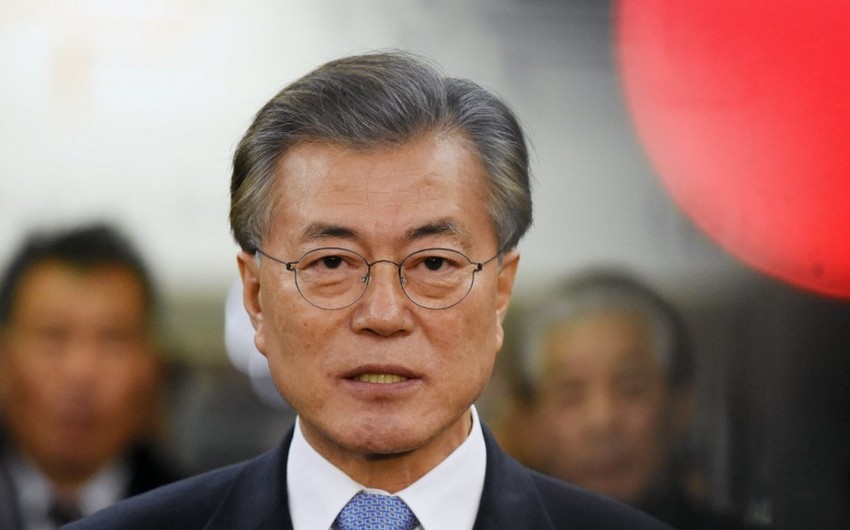South Korea's Moon Jae-in urged world leaders to bring the 70-year-old Korean War to a formal end, in his latest attempt to resuscitate stalled talks between U.S. President Donald Trump and Kim Jong Un.
In a speech to the United Nations General Assembly on Tuesday, the South Korean president argued that officially declaring an end to the 1950-53 conflict was the first step toward the complete denuclearization of the Korean Peninsula. Although an between the U.S.-led UN Command and China and North Korea ended open fighting, South Korea never signed the agreement and never replaced it with a peace treaty.
"The war must end, completely and for good," Moon said in a virtual address to the UN in New York. "I hope that the UN and the international community provide support so that we can advance into an era of reconciliation and prosperity."
Moon is seeking to revive nuclear talks that have produced little since Trump rejected demands for sanctions relief from North Korea's Kim and from their second summit in Hanoi in February 2019. The South Korean president has long advocated an end-of-war declaration to ease North Korean suspicions that America's goal is to remove Kim from power.
The two Korean leaders pledged in a landmark meeting on their heavily militarized border in 2018 that they would work together to end the war officially. However, a treaty has proved elusive because some in the U.S. fears it could for keeping American troops on the peninsula and removing Kim's pressure to compromise in nuclear talks. China has also been wary of a three-way deal that could draw North Korea toward the U.S.


 https://static.report.az/photo/e971a784-a7f0-3ed9-bf8b-b6d648c44d8e.jpg
https://static.report.az/photo/e971a784-a7f0-3ed9-bf8b-b6d648c44d8e.jpg

